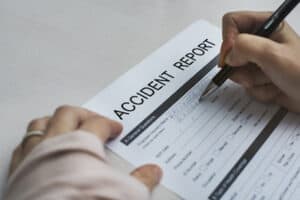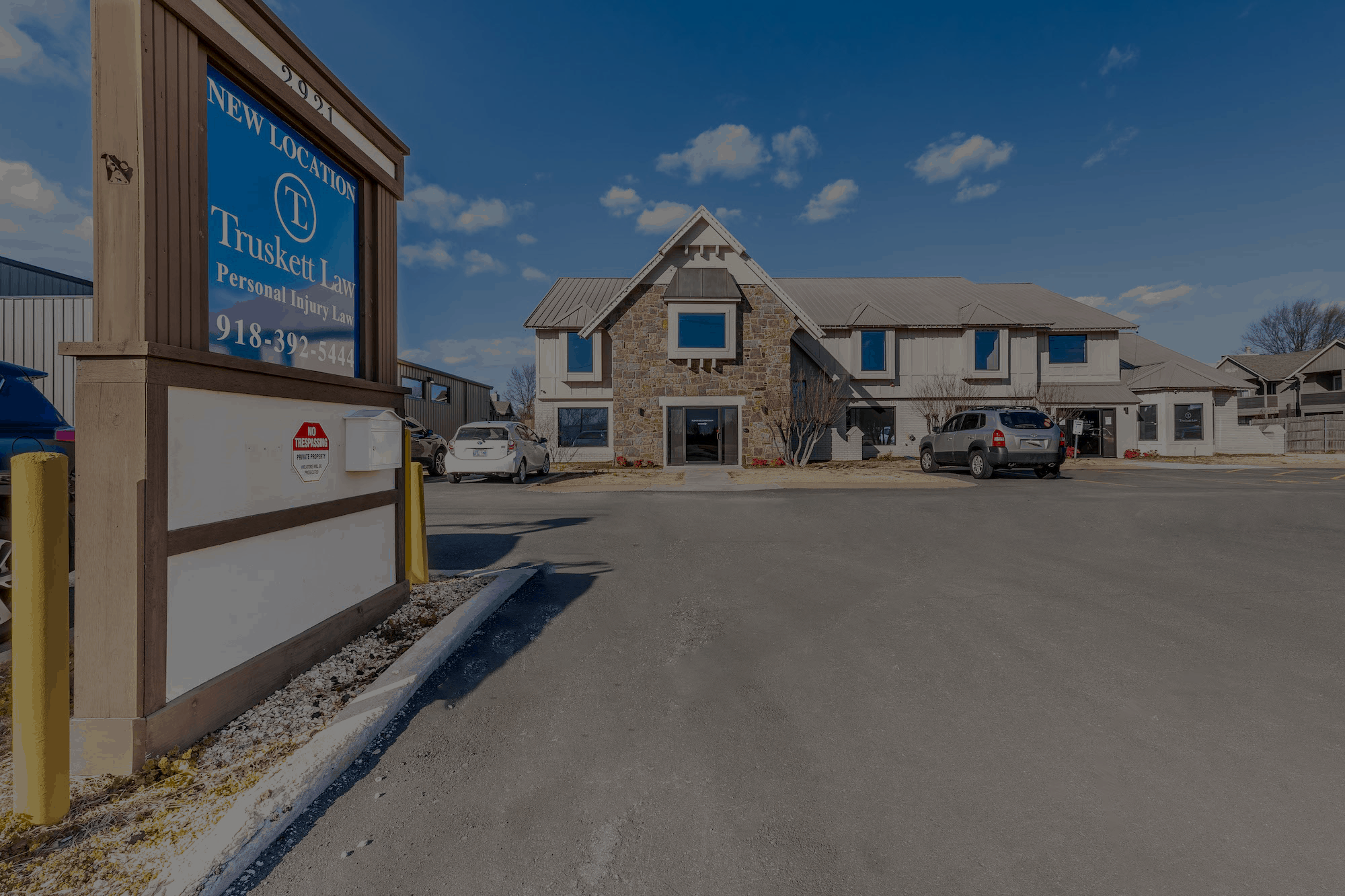
23 Aug How Does Comparative Negligence Affect My Personal Injury Claim?
What To Know About Comparative Negligence And Your Personal Injury Claim
When it comes to personal injury claims, understanding the legal concepts that can affect your case is crucial. One such concept that often comes into play is comparative negligence. If you’ve ever wondered, “How does comparative negligence affect my personal injury claim?” you’re in the right place.
In this informative article, we’ll delve into the intricacies of comparative negligence, its implications, and how it can impact the compensation you receive after an accident.
What Is Comparative Negligence?
Comparative negligence, also known as comparative fault, is a legal principle used to determine the degree of fault or responsibility of each party involved in an accident.
In cases where multiple parties contribute to an accident, comparative negligence assesses the proportion of blame that each party bears. This principle aims to allocate compensation fairly based on the level of fault.

Assessing the Degree of Negligence
The first step in handling a personal injury claim involving comparative negligence is to accurately assess the degree of negligence on both sides. This involves a thorough investigation of the accident, gathering evidence, and consulting with experts if necessary.
Understanding the extent to which each party contributed to the incident will help determine the potential impact on your compensation.
The Role of Comparative Negligence in Personal Injury Claims
In the context of personal injury claims, comparative negligence can significantly impact the outcome of your case. Jurisdictions may follow either a pure comparative negligence system or a modified one.
In a pure system, you may still recover damages even if you’re deemed mostly at fault, though your compensation will be reduced based on your degree of responsibility. In a modified system, you might lose your right to compensation if your fault crosses a certain threshold.
Unpacking the Effects of Comparative Negligence on Personal Injury Claims
To comprehend the impact of comparative negligence on your compensation, consider a scenario. Let’s say you were involved in a car accident where you sustained injuries. The court determined that you were 20% at fault for the accident because you were slightly exceeding the speed limit.
If your total damages are evaluated at $10,000, your compensation would be reduced by 20%, resulting in a $8,000 award.

Navigating Comparative Negligence: Dos and Don’ts
Navigating the complexities of comparative negligence requires strategic steps to strengthen your personal injury claim. Here are some dos and don’ts to consider:
Dos:
- Gather Strong Evidence. To establish your case, gather substantial evidence, such as accident reports, witness testimonies, and medical records.
- Consult Legal Counsel. Seek guidance from an experienced personal injury attorney who can help you navigate the legal nuances and advocate on your behalf.
- Negotiate Skillfully. If negotiating a settlement, your attorney can leverage the principle of comparative negligence to secure a favorable outcome.
Don’ts:
- Admit Fault Prematurely. Avoid admitting fault at the accident scene, as this can be used against you during legal proceedings.
- Delay Seeking Medical Attention. Promptly seek medical treatment after the accident to ensure your injuries are documented and treated appropriately.
- Handle the Case Alone. Without legal expertise, you may miss out on rightful compensation or inadvertently accept a lower settlement.
Addressing Common Concerns About Comparative Negligence
Can I Still Recover Compensation if I’m Partially at Fault?
Absolutely. In jurisdictions that follow this type of system, you can still recover compensation even if you share some degree of fault. However, your awarded amount will be reduced according to your assigned percentage of responsibility.
How Does Comparative Negligence Affect Settlement Negotiations?
During settlement negotiations, this principle can play a pivotal role. Insurance adjusters and legal representatives will consider each party’s level of fault when determining a fair settlement amount. The more substantial your evidence and legal representation, the better positioned you are to secure a favorable settlement.
Can Comparative Negligence Completely Bar Me From Compensation?
In jurisdictions with modified comparative negligence rules, your compensation claim could be barred if your assigned fault surpasses a specific threshold (often 50%). It’s crucial to know your jurisdiction’s laws as well as regulations to understand the potential impact on your case.

How Comparative Negligence Can Affect A Workplace Personal Injury Claim
Yes, this can apply to workplace incidents involving personal injury. When an employee sustains an injury on the job, this concept can come into play just as it would in other situations.
The principle evaluates the extent to which both the employer and the employee contributed to the accident. Factors such as the employee’s actions, adherence to safety protocols, and the employer’s provision of a safe work environment are considered.
If the injured employee is found to share some degree of fault, it can impact the compensation they receive. Just as in other cases. Both evidence as well as legal arguments play a crucial role in determining the outcome of the claim.
It’s essential for both the injured party and the employer to navigate the legal process while considering the principles of comparative negligence to ensure a fair resolution.
What To Expect In A Comparative Negligence Personal Injury Case
In a this type of case, individuals should anticipate a legal process that scrutinizes the details of the incident to determine the respective degrees of fault among all parties involved.
This meticulous examination seeks to establish a clear picture of the sequence of events leading up to the accident and the contributing factors of each party. Expect that evidence, such as accident reports, witness testimonies, photographs, and expert opinions, will play a pivotal role in shaping the narrative of the case.
These pieces of evidence will be thoroughly analyzed to ascertain the percentage of fault attributed to each party, helping to establish a foundation for potential compensation.
Furthermore, be prepared for a negotiation phase where this concept will significantly influence the discussions. During settlement negotiations, legal representatives and insurance adjusters will closely assess the evidence and the respective roles of each party in the accident.
The principle of comparative negligence will guide the negotiation process, as each side aims to advocate for their client’s interests while considering their share of responsibility.
Expect that skilled negotiation strategies, backed by compelling evidence, will be employed to achieve a settlement that accurately reflects the degree of fault and ensures a fair compensation amount.
If you cannot reach a settlement, the case might move to court. This principle will continue to shape the arguments presented and the ultimate judgment rendered.
Conclusion
Understanding how comparative negligence can affect your personal injury claim is vital for securing fair compensation. By comprehending the legal principles, implications, and strategic approaches, you can navigate the complexities of personal injury cases more effectively. Remember, seeking professional legal advice from an experienced personal injury lawyer is key to maximizing your chances of a successful outcome.
Related Questions
How does comparative negligence work?
It assigns a percentage of fault to each party involved in an accident, this impacts the compensation they receive.
What if I’m partially at fault for my injury?
Even if you’re partially at fault, you can still recover compensation, but the awarded amount will be reduced based on your level of responsibility.
How can I prove the other party’s negligence?
To prove negligence, gather evidence such as accident reports, witness statements, as well as medical records to establish the other party’s fault.
What’s the difference between pure and modified comparative negligence?
In a pure system, you can recover compensation regardless of your fault level, while in a modified system, you may lose compensation if your fault exceeds a certain threshold.
Should I hire a personal injury attorney?
Yes, hiring a personal injury attorney is the best recommendation to navigate the legal complexities and increase your chances of a favorable outcome.
Can I negotiate a settlement if I’m partially at fault?
Yes, you can negotiate a settlement. Also, your attorney can use the principle of comparative negligence to advocate for a fair amount.


Sorry, the comment form is closed at this time.